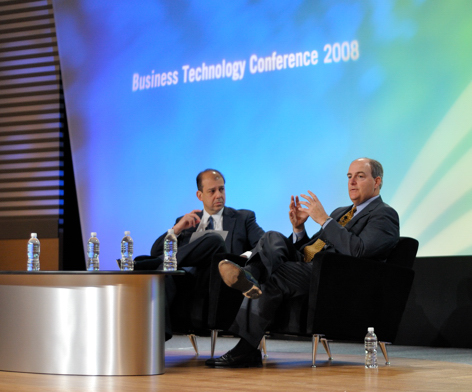AMR Research: Changing role of the CIO


During a presentation at AMR Research's Business Technology Conference, J. Chris Scalet, Chief Information Officer of pharmaceutical manufacturer Merck discussed the changing role of CIOs in large organizations.
Scalet said:
The CIO role is at a key tipping point. Unless CIOs take on added responsibilities, the role could revert to a pure technology focus, which would be a shame.
He added that in the past 75% percent of a CIO's time was spent talking about technology and 25% was spent discussing the business. Today, the role has evolved so those numbers are now reversed. In many progressive companies, CIOs have taken full responsibility for core business functions such as supply chain, procurement, facilities, and back office operations.
In addition, organizations are demanding that CIOs actively participate in:
- Reducing costs
- Developing business strategy
- Improving market share
- Championing change
- Driving innovation
CIOs maintain a unique position inside many organizations, sitting at the juncture of business and technology. From that perspective, Scalet believes these additional functions make sense, especially in organizations where the CIO serves as partner with the CEO in delivering value to the organization. He acknowledged this evolution has been the subject of debate, as some observers believe this expanded scope may distract the CIO's attention away from core technology issues.
Scalet believes CIOs should ultimately serve as business architect, addressing issues such as:
- Technology architecture
- Information architecture
- Process architecture
Significantly, he thinks CIOs should serve as executive sponsor for large-scale change initiatives, taking accountability for the outcome and results. I believe this approach is overly risky for most organizations, where gaps between business and IT already cause many problems and failures. On the other hand, Merck has developed a highly evolved, and unusually close, partnership between business and IT.
[Photo of AMR CEO, Tony Friscia, and Merck CIO, J. Chris Scalet, by Michael Krigsman.]